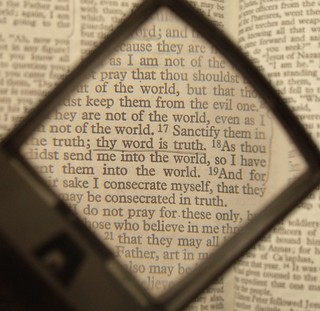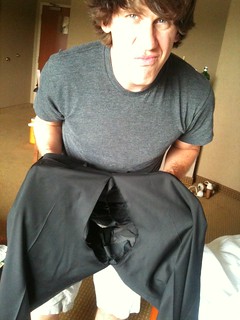Hurricane Isaac Makes Landfall
(U.S. Navy photo by Mass Communication Specialist 1st Class R. Jason Brunson)
Hope everyone has had a good week. It hasn't been the best week on my end. Hurricane Isaac made its way through Louisiana and my parents' house (the house I spent most of my life in) was flooded. Luckily, they evacuated before the storm, but their house which they literally just spent two years completely remodeling from top to bottom is going to be ruined. :( And because it was only a Cat 1 storm, they didn't even bother to take things like photos and such with them. They've lived there twenty years, through Andrew, through Katrina, and never even had water on their street. Then this one comes along and wham. : ( So send prayers to Louisiana and anyone who's been affected by this storm.
All right, now on to the links for the week...
Favorite Link of the Week: The Publishing Process in GIF Form | Nathan Bransford, Author <--so funny AND true
On Writing/Publishing:
- Monday News: Cheaters prospering; Backlist sales declining; Online dictionaries more of a hinderance via Dear Author
- Are fan fiction and fan art legal? via Io9
- Lance Armstrong & Jonah Lehrer–What are We Willing to Do to Win? « Kristen Lamb's Blog
- Leave a Message at the Tone: Setting the Right Tone for Your Story via Janice Hardy
- The Revival of the Serial via Dear Author and in a related post: 'Because You Are Mine' author Beth Kery on writing a serialized novel - USATODAY.com
- Jumpstarting Fiction: How to Find Unique, Timely Ideas to Energize Your Creativity via Anne R. Allen
- Joe Wikert's Publishing 2020 Blog: Why a Used Ebook Ecosystem Makes Sense
- Not So Fast: Ideas to Rethink | Rachelle Gardner
- The Kill Zone: How to Write a Novella by James Scott Bell
- Publishing Is Broken, We're Drowning In Indie Books - And That's A Good Thing - Forbes
- 7 Essential Elements of Scene Scene Structure Exercise | Jane Friedman
- Against Acknowledgments at the End of Novels : The New Yorker <--This just annoyed me. If you don't like the author thanking people, just skip that page. Writers are human and would like to have our one little page to say what we want to people who are important to us. That'd be like telling actors to not give Oscar speeches. Please.
On Social Media/Marketing:
- 5 Lessons About Community that Writers MUST Learn « DIY MFA
- Seekerville: Why Free Won’t Build Following with Guest Nancy Kimball
- Top Five Creepy Social Media Marketing Tactics « Kristen Lamb's Blog
- A 5-Step Plan to Improve Every Blog Post You Write | Copyblogger
- Build a Better Author Bio for Twitter | Jane Friedman
- Author Magazine - An Interview with Kristen Lamb <--good overview of Kristen's perspective on social media
- How Often Should You Blog? (Hint: The Answer Might Surprise You) : @ProBlogger
- Hashtags: How to Use Them Without Abusing Them - She Writes by Meghan Ward
- Let’s Talk Blogging and Your Website via Smexy Books (geared toward people who want to build a book blogger site)
For Gits and Shiggles:
- Ryan Gosling coloring book via Melissa Blake
- Publishing world is turned on by 'Fifty Shades of Grey' – USATODAY.com
- Lea recommends 'Because I Said So,' 'Inside Bet,' 'Melt into You' - USATODAY.com <--okay so this one is totally self-serving. But it's my blog and I can do that every now and then. ;)
What You May Have Missed Here:
That's all I've got for you this week. Hope everyone has a lovely weekend. : )




